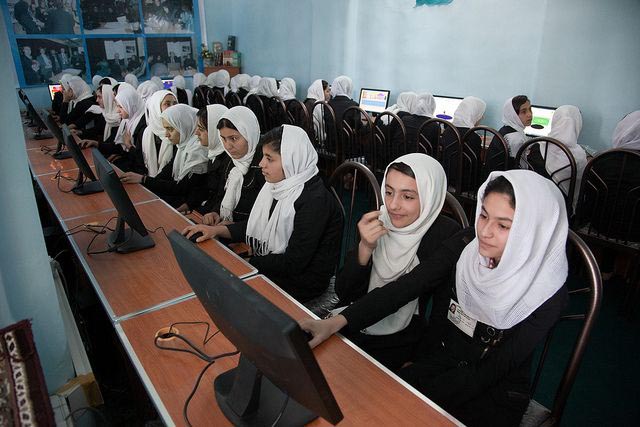Currently, Afghanistan abounds with dreadful environmental, economic, social challenges while not seen any significant milestone en route for long term action program in recent years. The main developmental indicators such as mentioned notify that Afghanistan is not heading towards a sustainable development or bright future. The Government, parliament and political parties are engulfed with tiring individual and tribal issues.
contexts. Education for Sustainable Development means to enable to constructively and creatively address present and future global challenges and create more sustainable and resilient societies.
As a modern global citizen, we need to know that we live in a world of 7 billion people by means of cultural diversity while every year increase about 80 millions further with limited natural resources, regional and global competitions. We have to learn how to live together and take responsible actions based on the justice system and understanding that actions here and today can have for of people in other parts of the country, as well as for future generations. We need to empower learners to live responsible lives and to address complex global challenges means that education has to promote competencies like critical thinking, respect cultural differences, imagining future scenarios and making decisions in a collaborative way. This calls for new approaches to learning, the development of vibrant green economies and societies, and the emergence of a “modern global citizenship”.
and many social crises. It is recognized as a key to development, poverty alleviation and defeat terrorism. Turning around this trend is the only way to break the cycle of poverty as well as social issues. Better education supports the development, health and sustainability of a community and it lays a foundation for long-term stability.
The current educational system in Afghanistan backing to hundred years ago whilst it is an essential need of the time to standardize the schools and universities as a place where young people not only acquire knowledge, but where they learn how to use it, how to live in a multicultural society or world, how to make an argument with historical events and how to think with numbers. In fact, School and University are the places where young people learn how to think with and through each other, how to jointly puzzle over a problem how to make sense of discordant views, how to arrive at consensus. School is a place where your world can open up–mine certainly did–through history, and geography, and literature, but, too, through the people you meet and through your own growing sense of where you fit in the scheme of things.
Education for Sustainable Development (ESD) is not a particular program or project, but is rather an umbrella for many forms of education that already exist, and new ones that remain to be created. ESD promotes efforts to rethink educational programs and systems (both methods and contents) that currently support unsustainable societies. ESD affects all components of education: legislation, policy, finance, curriculum, instruction, learning, assessment, etc. ESD calls for lifelong learning and recognizes the fact that the educational needs of people change over their lifetime. Many individuals and organizations around the world already implement ESD (e.g. a teacher weaving sustainability themes into primary education using participatory methods; a community development worker raising people’s awareness on rights which are denied to them; or a public health worker training people to draw water from clean sources). There are many programs using an ESD approach to learning which is critical for achieving sustainability
On the other hand, Education for girls is more important than boys but the barriers and tribal illusions keep girls from attending school are often higher than for boys. Keeping girls in school provides life-changing benefits not just for individuals, but for the entire community. Education is a fundamental human right and essential for the exercise of all other human rights. If you educate a man, you educate one man but if you educate a woman, you educate a generation.
expert’s consensus, education is the best strategy to a sustainable development and to a secure Afghanistan in the longer term. That’s why we need to choose it as a top national priority, and as a best way to reaching a peaceful, stable and strong Afghanistan. That’s why it is repeated that education is the foundation of all infrastructures which means the whole environmental, social, cultural, political and economic challenges rooted to this great issue. It is suggested to include education as an obligatory duty in national constitution. And call for international support for the purpose of reaching to a sustainable and useful country both for neighboring and for the rest of the world with free ignorant and free terrorist ground at all.
Home » Opinion » Education for Sustainable Development
Education for Sustainable Development
| Mohammad Zahir Akbari

